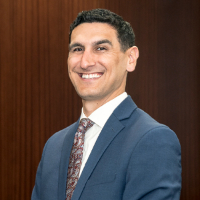 Frederick Criminal Lawyers, Maryland
Frederick Criminal Lawyers, Maryland
Sponsored Law Firm
-
 x
x

Click For More Info:
-
James E. Crawford, Jr. & Associates, LLC
999 Corporate Blvd. Suite 100 Linthicum, MD 21090» view mapCriminal Defense, Divorce & Family Law Move Forward With Confidence
Our Firm's team of family, criminal, and business lawyers understand that each case presents unique challenges and must be met with equally unique approaches.
800-789-9220
Sponsored Lawyers
1-10 of 36 matches
Criminal
Attorney Michael Berman is dedicated to helping wrongfully injured clients with various legal concerns, especially those dealing with personal injury law and workers’ compensation. Mr. Berman previously worked as a prosecutor with the State’s Attorney’s Office for Anne Arundel County, though he has ample experience in many different areas of the law. He has continually taken on challenging positions throughout his legal career, each of which has added to his legal knowledge and supported his ability to successfully represent his clients. Born and raised in Maryland, Attorney Berman attended DeMatha Catholic High School before he went on to University of Maryland College Park. Attorney Berman then earned his JD from the University of Baltimore School of Law, graduating Magna Cum Laude with a Concentration in Litigation and Advocacy. While in law school, Attorney Berman served as an Associate Comments Editor on the University of Baltimore Law Review, where he honed his legal writing skills. Mr. Berman also represented clients in civil commitment proceedings as a student attorney with the Disability Law Clinic, before going on to work as a Certified Mediator for the Health Advocacy Unit in the Office of the Attorney General. Attorney Berman was hired as a judicial law clerk for the Honorable J. Michael Wachs in the Circuit Court for Anne Arundel County after he graduated law school. While working in that position, he frequently reviewed motions, conducted legal research, and assisted Judge Wachs with the preparation of various court rulings. During his time as an Assistant State’s Attorney, in addition to his sizeable caseload, Mr. Berman was responsible for screening DUI cases, sifting through hospital records, conducting competency hearings, and training colleagues on DUI case law. He started on the District Court team, before being promoted to the Circuit Court, and ultimately to the Auto-Manslaughter Trial Team. Attorney Berman’s extensive trial and litigation experience qualify him to take on complex and challenging injury cases. Having handled thousands of serious traffic cases, Mr. Berman knows precisely how to help injured clients fight for their rights after serious car accidents, pedestrian accidents, and other similar cases. If you need legal representation, Mr. Berman is prepared to help.
(more)Accident & Injury, Lawsuit & Dispute, Criminal, Estate, Business
Brett M. Dieck graduated Cum Laude with a Bachelor of Science Degree from the University of Baltimore Merrick School of Business in 2003. In May 2009, Brett obtained his Juris Doctorfrom the University of Baltimore School of Law. Throughout law school, Brett worked as a law clerk for a small firm in Annapolis, Maryland and a large firm in Towson, Maryland. In December 2009, Brett was admitted to the Maryland State Bar and in September 2011 Brett was admitted to the United States District Court for the District of Maryland. Brett is currently a member of the Maryland State Bar Association (MSBA), the Baltimore County Bar Association, and the Baltimore City Bar Association. Additionally, Brett is qualified as a Civil Mediator in the State of Maryland.Since 2002, Brett has worked in the title industry providing marketing and settlement services as an agent licensed by the State of Maryland. In June 2003, Brett successfully founded his own company - Old Line Title Company, Inc. Brett continues to manage the company on a daily basis as President and General counsel.
(more)


 James Crawford, Jr. Linthicum, MD
James Crawford, Jr. Linthicum, MD Practice AreasExpertise
Practice AreasExpertise


